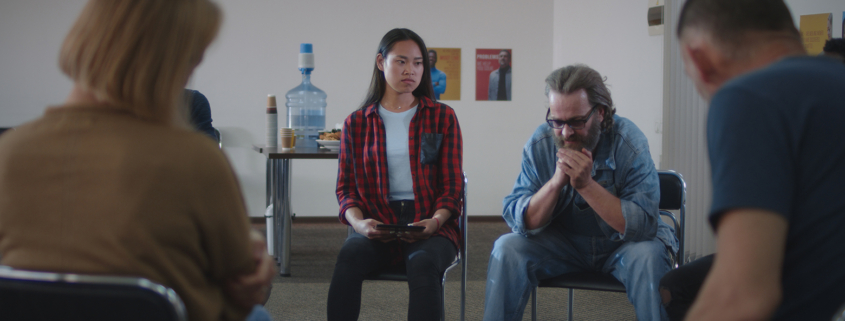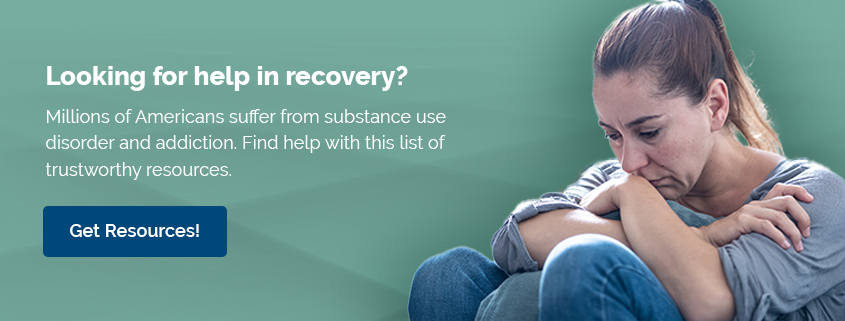Should You Try The 12 Steps of AA (Alcoholics Anonymous)?
The 12 steps of AA are the core of the Alcoholics Anonymous approach to recovery from alcoholism. The program was developed by co-founders Bill Wilson and Dr. Bob Smith (who were both recovered alcoholics) with input from other members. The idea is that when an alcoholic admits that they have a problem and agrees to follow certain guidelines for living a sober life, they will eventually be able to eliminate their need for alcohol or other drugs entirely.
While developed for alcoholism, the twelve steps of alcoholics anonymous’ philosophy can be used for other addictions, and many of the principles have been adopted by other organizations. For example, Narcotics Anonymous is for those struggling with substance abuse.
What Is Alcoholism?
According to the Substance Abuse and Mental Health Services Administration (SAMHSA), alcohol is the most frequently used (and abused) substance in America. Because alcohol use is so prevalent, it can be easy to misuse, abuse, or develop unhealthy habits.
Alcoholism is the most serious form of alcohol abuse. It involves drinking alcohol in excess and frequently. People with alcoholism find it difficult to stop drinking even when there are negative consequences, whether for themselves or others. They feel like they cannot function in daily life without alcohol.
The 12-step program is outlined in what Alcoholics Anonymous refers to as “The Big Book.” So, what are those steps exactly? Let’s take a look.
What Are The 12 Steps of Recovery?
-
- We admitted we were powerless over alcohol — that our lives had become unmanageable.
- Came to believe that a Power greater than ourselves could restore us to sanity.
- Made a decision to turn our will and our lives over to the care of God as we understood Him.
- Made a searching and fearless moral inventory of ourselves.
- Admitted to God, to ourselves, and to another human being the exact nature of our wrongs.
- We’re entirely ready to have God remove all these defects of character.
- Humbly asked Him to remove our shortcomings.
- Made a list of all persons we had harmed and became willing to make amends to them all.
- Made direct amends to such people wherever possible, except when to do so would injure them or others.
- Continued to take personal inventory and when we were wrong promptly admitted it.
- Sought through prayer and meditation to improve our conscious contact with God as we understood Him, praying only for knowledge of His will for us and the power to carry that out.
- Having had a spiritual awakening as the result of these steps, we tried to carry this message to alcoholics and practice these principles in all our affairs.
Source: https://www.aa.org/the-twelve-steps
What Is AA About?
Simply put, alcoholics anonymous is about the road to addiction recovery. The first step, of course, is admitting that there is a problem and understanding that addiction treatment is the next step.
After acknowledging the problem(s), AA members take responsibility for their actions — and how it affects the people around them. The AA recovery program focuses heavily on taking ownership of wrongdoings and making amends whenever possible or appropriate.
How It Works
Aside from following the 12 steps, the AA program is successful because it allows everyone involved to feel supported and get help from people in similar positions — all while giving support to help others, as well.
As part of the program, participants attend regular AA meetings. These meetings are a safe space for people to talk about their alcohol addiction openly with others in similar situations. It builds a community and support system for those in the treatment program. In these support groups, individuals are able to see each other succeed — and learn from others’ setbacks.
When To Get Help With Alcohol Addiction
Knowing when to get help looks different for everyone. Addiction can be hard to spot, whether looking out for a loved one or seeing it in yourself. Here are some of the more common warning signs to look out for:
Signs To Look For Within Yourself
-
- Feeling powerlessness over your addiction
- Not wanting to admit to friends or family if you’re drinking
- Needing a drink to get through the day
- Not attending social activities if there will not be alcohol
- Feeling tired or irritable
- Unable to turn down a drink offering
- Trouble sleeping
- Feeling anxious or depressed
- Stealing alcohol or money to buy alcohol
- Drinking more for the same effect (higher tolerance)
- Craving alcohol
Warning Signs for a Loved One
-
- Excessively drinking multiple times a week
- Appearing drunk at social functions often
- Seeming tired or unwell
- Irritability or mood swings
- Lying about where they are or what they’re doing
- Being dishonest about how many drinks they’ve had
- Missing work or important events
- Unusually high alcohol tolerance
How Alcoholism Affects Others
Addiction doesn’t just affect the person; it also affects friends, family members, and loved ones. While there may be financial consequences (like the inability to pay for things due to spending money on the addiction), there are emotional consequences, as well. This is why a portion of the 12 steps of AA are focused on addressing the harm caused to others and making amends.
Direct amends means going directly to the person and apologizing for your behavior. This can be difficult, but it’s a critical part of recovery because it’s an acknowledgment that you were wrong and need help from someone else. The nature of alcohol abuse means that many addicts have hurt people close to them through their actions or words; making an effort to repair this damage shows your commitment to overcoming addiction.
Do You Need To Be Religious?
The 12 steps mentioned above focus on a higher power to guide the road to recovery. However, you do not need to be a certain religion to follow this treatment program. A higher power could be a deity (ex: God) or an abstract idea (like “the Universe”). Addiction affects people of every demographic, so recovery is not religion-specific.
The emphasis on spiritual principles varies from person to person—it’s not about religion or even belief in God; it’s about having faith in something bigger than yourself and finding meaning for yourself within that context. Everyone is welcome regardless of their background.
Find Hope for Addiction Recovery at Meridian
The 12 steps of AA are just one treatment option for addiction recovery; treatment programs can include AA group meetings, personal counseling, inpatient services in a treatment center, and even medication to address co-occurring mental illnesses.
If you or a loved one are ready to take the first step in recovery, Meridian HealthCare will take that step with you. Call today and find your hope.






